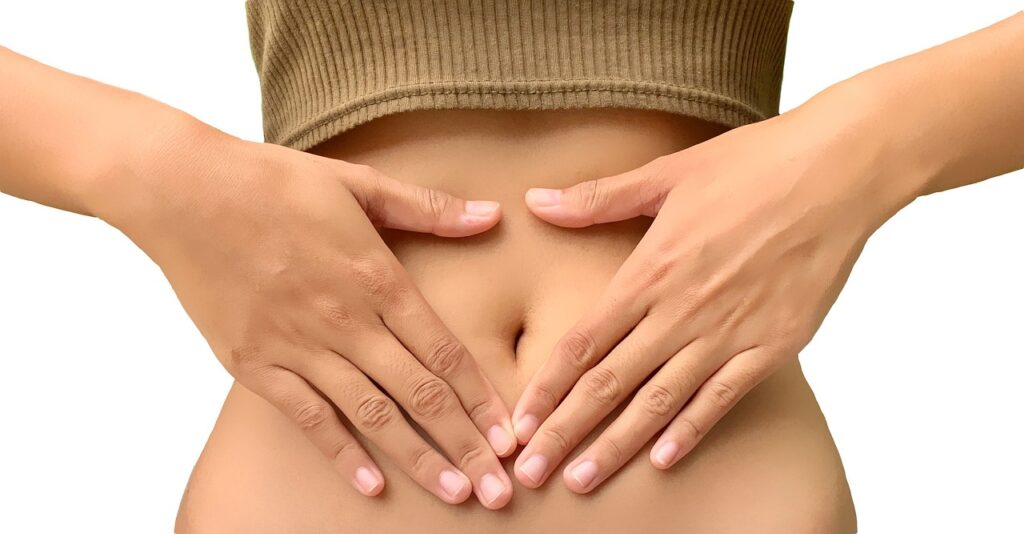Contact Us: (901) 675-6125

Gut health plays a crucial role in overall wellness, impacting everything from digestion to immune function and even mood. For women over 40 using GLP-1 medications as part of their weight loss journey, maintaining a healthy gut is particularly important. GLP-1 medications, while effective in helping with weight loss, can significantly impact gastrointestinal function. Understanding how to support your gut health while using these medications can help enhance your results and improve your overall well-being.
Understanding the Gut-GLP-1 Connection
GLP-1 (Glucagon-Like Peptide-1) medications are designed to help with weight loss by mimicking the action of the GLP-1 hormone in the body. This hormone slows down gastric emptying, reduces appetite, and increases feelings of fullness after eating. While these effects are beneficial for weight loss, they can also lead to changes in digestion that may require special attention to gut health.
The slowed gastric emptying caused by GLP-1 medications can lead to prolonged digestion times, which may result in symptoms such as bloating, gas, and constipation. For this reason, it’s essential to adopt dietary and lifestyle habits that support a healthy digestive system.
Dietary Tips for a Healthy Gut
Maintaining gut health while on GLP-1 medications starts with your diet. Here are some key dietary tips to keep your gut functioning smoothly:
1. Incorporate Fiber-Rich Foods:
Fiber is your gut’s best friend, especially when using GLP-1 medications. Dietary fiber adds bulk to your stool and helps regulate bowel movements, which can alleviate constipation—a common side effect of these medications. Aim to include a variety of fiber-rich foods in your diet, such as whole grains, fruits, vegetables, legumes, and nuts. Start with small amounts and gradually increase your intake to prevent any initial digestive discomfort.
2. Stay Hydrated:
Proper hydration is crucial for supporting digestion and ensuring that fiber moves smoothly through your digestive system. Drinking enough water can also help reduce feelings of bloating and discomfort. Aim to drink at least 8-10 glasses of water per day, and consider spacing out your water intake throughout the day to maintain consistent hydration.
3. Focus on a Balanced Diet:
A diet rich in whole foods provides essential nutrients that support gut health and overall well-being. Focus on incorporating a variety of fruits, vegetables, lean proteins, and healthy fats into your meals. These foods not only nourish your body but also promote a diverse and balanced gut microbiome—a key factor in maintaining a healthy gut.
The Role of Probiotics
Probiotics are beneficial bacteria that help maintain the balance of the gut microbiome. A healthy gut microbiome is essential for digestion, immune function, and even weight management. Here’s how you can incorporate probiotics into your routine:
1. Include Probiotic Foods:
Fermented foods are an excellent source of natural probiotics. Incorporating foods like yogurt, kefir, sauerkraut, kimchi, and miso into your diet can help boost the levels of beneficial bacteria in your gut. These foods not only support digestion but also help maintain the balance of your gut microbiome, which is crucial for overall gut health.
2. Consider Probiotic Supplements:
If you’re not getting enough probiotics through your diet, or if you’ve recently taken antibiotics, you might consider a probiotic supplement. Look for a high-quality supplement with multiple strains of bacteria and a sufficient number of colony-forming units (CFUs). It’s always a good idea to consult with your healthcare provider before starting any new supplement, especially if you’re on GLP-1 medications.
Gut Health and Weight Loss Success
A healthy gut is not just about avoiding digestive discomfort—it’s also about optimizing your weight loss efforts. A balanced gut microbiome can improve metabolism, enhance nutrient absorption, and even influence hormones that regulate appetite and fat storage. By taking care of your gut, you’re setting yourself up for better weight loss results and long-term health.
Conclusion
Maintaining gut health while using GLP-1 medications is a vital component of a successful weight loss journey. By making small but meaningful changes to your diet and incorporating probiotics, you can support your digestive system and enhance your overall well-being. Remember, gut health is a key factor in how your body processes food, absorbs nutrients, and manages weight.
Ample Health and Wellness Support:
At Ample Health and Wellness, we understand the unique challenges that come with balancing gut health while on GLP-1 medications. Our coaching services are designed to help you navigate these challenges with personalized guidance on diet, wellness, and mindfulness. Whether you’re just starting GLP-1 medications or transitioning off them, our holistic approach can support your journey to better health.
Sign up for our weekly newsletter to receive more tips and insights on maintaining gut health, weight loss, and overall wellness.

References:
- Harvard Health Publishing. (2023). “The benefits of fiber: For your gut, your weight, and your health.” https://www.health.harvard.edu
- Cleveland Clinic. (2023). “Probiotics: What is it and how does it work?” https://www.clevelandclinic.org
- Mayo Clinic. (2023). “Dietary fiber: Essential for a healthy diet.” https://www.mayoclinic.org
